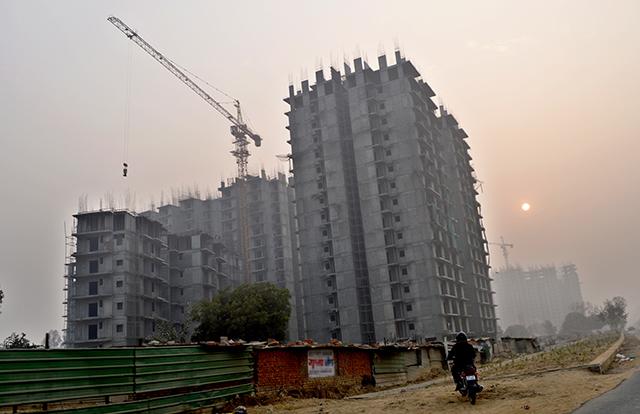Finance minister Arun Jaitley showered largesse on the realty industry after the prime minister spooked the sector with demonetisation three months ago. The FM said he plans to accord infrastructure status to affordable housing while expanding the scope of what constitutes such dwellings and also provided some capital gains taxation relief for sellers of real estate.
The most prominent move was the decision to give infrastructure status to low cost housing. This would boost development of such units as developers and buyers alike can benefit from associated benefits including lower borrowing rates and other tax advantages.
The new status will increase the resource allocation for the sector, catalysing housing supply and reducing the supply gap, according to Brotin Banerjee, managing director and CEO, Tata Housing Development Company Ltd.
Tata Housing, a privately held arm of Tata Sons, is one of the few large realtors to have a presence in both affordable housing and mid-high end real estate market.
“Easy and dedicated access to institutional financing, higher limit on external commercial borrowings will attract more investments and assure sustained growth of affordable housing in India, making it the core driving segment for real estate. On the other hand, long term financing at lower rates will reduce costs of construction for developers allowing them to pass on benefits to consumers,†said Banerjee.
While presenting the Budget, Jaitley said 1 crore houses will be built for homeless by 2019. The allocation for Prime Minister Grameen Awas Yojana has been increased to Rs 23,000 crore for 2017-18 against Rs 15,000 crore in 2016-17. The government already has an existing mission – Housing for All by 2022.
To make affordable housing scheme more attractive, the FM also expanded the definition of such units. “Instead of built up area of 30 and 60 sqm, the carpet area of 30 and 60 sqm will be counted. Also the 30 sqm limit will apply only in case of municipal limits of four metropolitan cities while for the rest of the country including in the peripheral areas of metros, limit of 60 sqm will apply,†the minister said.
The FM also extended the profit-linked income tax exemption for promoters of affordable housing schemes. In order to be eligible, the scheme was to be completed in three years after commencement which has now been extended to five years.
“Credit off take towards affordable segment of housing will lead to creation of supply especially for both stake holders the first home buyer and developer who will now have access to cheaper funding. We expect the government to make a deliberate decision on defining affordable housing keeping in view the differentiation between tier I, II and III locations,†Ravi Ahuja, executive director, office services & investment sales at research firm Colliers International India, said.
Jaitley also made some additional tweaks for taxation in the real estate sector that has been facing a slowdown for almost a decade with low appetite for purchases given high property prices and borrowing costs.
The holding period for considering gain from immovable property has been reduced to two years from three years currently. While real estate would still be behind equities as an asset class as the latter enjoys zero long terms capital gains tax after one year, the lowering of the threshold will reduce tax liability on some sellers.
Also, the base year for indexation is proposed to be shifted from 1 April 1981 to 1 April 2001 for all classes of assets including immovable property. This move will significantly reduce the capital gain tax liability while encouraging the mobility of assets. This would allow sellers to limit their tax liability by reducing the deemed capital gains.
The FM also said he plans to extend the basket of financial instruments in which the capital gains can be invested without payment of tax. Currently sellers have the option to invest in another property or in few specified saving instruments such as bonds issued by National Highway Authority of India (NHAI) or Rural Electrification Corporation (REC). There is a three year lock-in for redeeming such bonds.
Meanwhile, the FM said, for joint development agreement signed for development of property, the liability to pay capital gain tax will arise in the year the project is completed.
At present, the houses which are unoccupied after getting completion certificates are subjected to tax on notional rental income. For builders for whom constructed buildings are stock-in-trade, the FM proposed to apply this rule twelve months after the year in which completion certificate is received so that they get some breathing time for liquidating their inventory.
Anshuman Magazine, chairman, India & South East Asia at realty consultancy firm CBRE, said that have government has been accommodative of the concerns of the real estate sector: “The relaxation on long term capital gains, joint development agreements, tax rebates for builders will help reduce their tax liability.â€
Like this report? Sign up for our daily newsletter to get our top reports.






